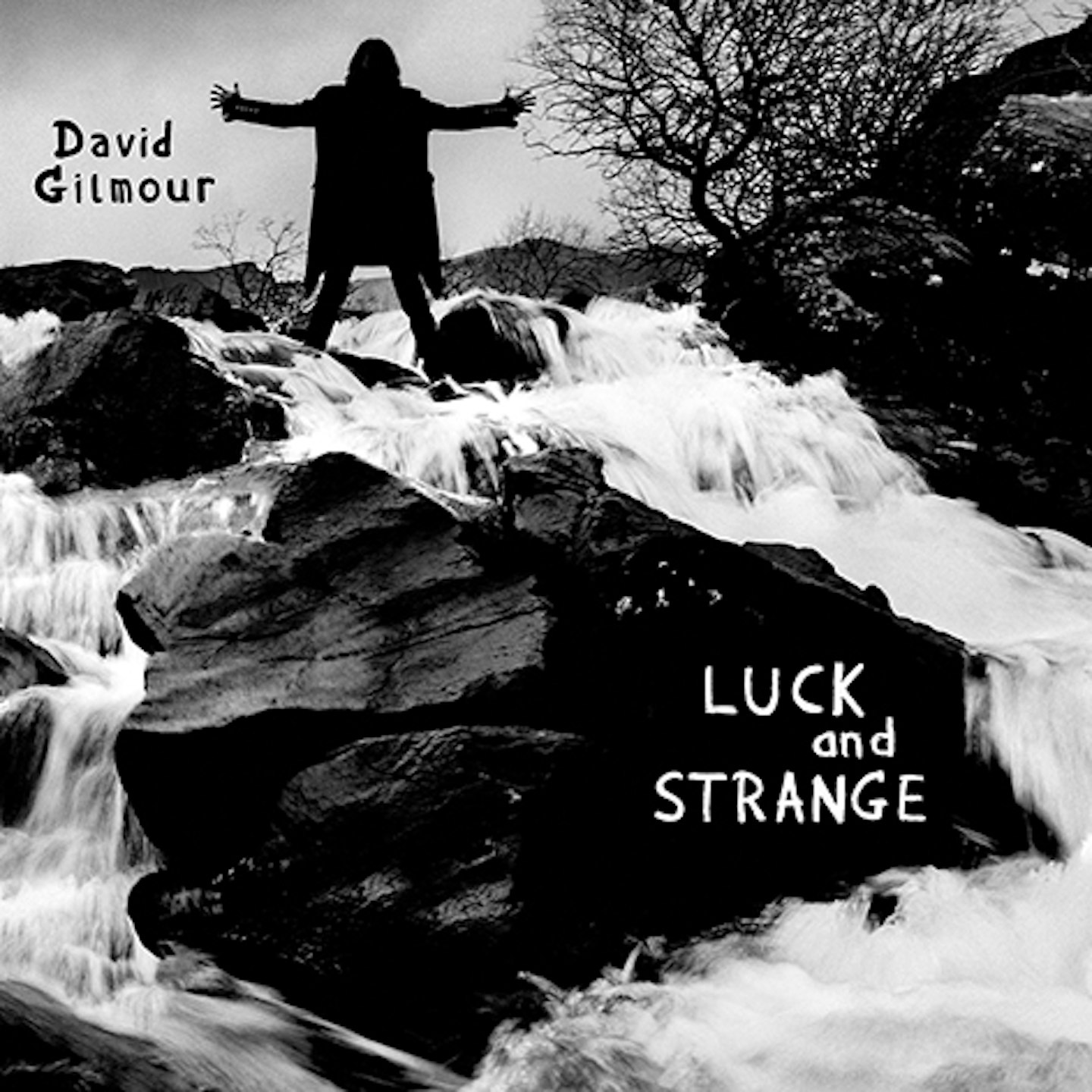David Gilmour
Luck And Strange
★★★★
SONY MUSIC

In the process of creative collaboration, conflict is often the grit that produces the pearl. For David Gilmour, from the late ’60s through to the early ’80s, it was his testy relationship with the increasingly combative and domineering Roger Waters that informed the output of Pink Floyd, before their messy divorce saw the former assume full control of the band from the mid-’80s on. In the wake of an uneasy onstage reunion at Live 8 in 2005, it was clear that Gilmour didn’t relish repeating the experience and that the dual-fronted Floyd were absolutely no more.
-
READ MORE: Pink Floyd’s Best Albums Ranked
Then, in 2022, came an online spat that followed Waters’ inflammatory comments about both Israel and Ukraine. “Sadly, Roger Waters you are antisemitic to your rotten core,” tweeted Polly Samson, Gilmour’s wife and lyricist. “Also a Putin apologist and a lying, thieving, hypocritical, tax-avoiding, lip-synching, misogynistic, sick-with-envy megalomaniac. Enough of your nonsense.” Gilmour subsequently chipped in, hammering in the final nail: “Every word demonstrably true.”
Down the years, Gilmour’s sporadic solo career has been similarly reactionary. His self-titled debut, released in 1978, was swiftly recorded after the sloth-like sessions for Floyd’s Animals. Its successor, 1984’s About Face, was a stab at a mainstream rock career in the aftermath of the Waters-helmed The Final Cut. Later, Gilmour settled into his solo groove with On An Island (2006) and Rattle That Lock (2015) and was ultimately left with total creative control but without a sparring partner in the studio.
Enter producer Charlie Andrew, whose credits range from Madness to Marika Hackman, but who came to Gilmour’s attention through his work with Leeds art rockers Alt-J. Invited to hear the demos for what was to become Luck And Strange, Andrew challenged Gilmour over whether every track needed a guitar solo or to disappear over the horizon with a slow fade out. “He’s very direct, and not in any way overawed, and I love that,” Gilmour says of his new co-producer and the experience of making this fifth solo album. “The last thing you want is people deferring to you.”
Andrew has certainly aired Gilmour’s sound bed. If the drivetime rocking title track of Rattle That Lock - and some of the rest of the album - already sounds more dated than its nine years, then here Andrew has moved the singer/guitarist into more modernist soundscapes. Not always without some discomfort. When the producer enlisted Tom Herbert (The Invisible, Polar Bear) to play bass over the syncopated Time Of The Season beats of A Single Spark, Herbert contributed a low-end FX drone that was beyond Gilmour’s ken. “He was doing something I don’t really understand,” he admits. “I was quite grumpy for a day or two.”
Musically, as the record progresses, we’re into entirely new sonic territory for Gilmour...
Luck And Strange opens in a more familiar fashion, with the unmistakable slow-hand soloing of the instrumental Black Cat, before moving into the leisurely ¾ blues of the title track, built from a 2007 jam (also featured here uncut and unadorned as a bonus track) notably featuring the late Rick Wright on Hammond organ and electric piano. It’s a song steeped in autobiographical nostalgia, for a postwar age involving free milk for school children and teenage years taking inspiration from “six-string masters of an expanding universe”. As with many of Samson’s lyrics on the album, there are ominous references to encroaching darkness.
Musically, as the record progresses, we’re into entirely new sonic territory for Gilmour. The Piper’s Call - dealing with an entrancing figure who “will trade your soul for favours” - begins with reverb-heavy Caroline No percussion and keyboard vibraphone, over which Gilmour sails a lovely, crooning melody. In Sings, a dreamy ballad concerned with the impossible pursuit of slowing time, he’s supported by an alternatively woozy and soothing orchestral score, while Dark And Velvet Nights features a choppy groove that verges on skanking. Perhaps most surprising of all is Between Two Points, a cover of a 1999 song by UK indie duo The Montgolfier Brothers (discovered by Gilmour on a playlist) sung by his and Samson’s 22-year-old daughter Romany in a style that sits somewhere between Eliza Carthy and The Sundays’ Harriet Wheeler.
Samson has written most of Gilmour’s lyrics for 30 years now (since 1994’s The Division Bell) and here really sounds as if she’s managing to divine his thoughts – and, of course, reveal her own – about the Big Stuff. Magic(k) is one of the themes, summoned in Dark And Velvet Nights via “a night of hard drinking and ecstasy”, although the overarching one is mortality. In the same song, Gilmour fatefully wonders, via Samson, “How will we part/Will I hold your hand, or you be left holding mine?” If that sounds heavy-going, then Luck And Strange really isn’t, being high on melody, as rendered by a 78-year-old whose voice hasn’t been withered by time in the slightest.
Thematically, The Montgolfier Brothers’ cover is fitting, too, since Samson’s lyrics frequently return to explore the space between two points, whether it be the “one-off peaceful golden age” between WWII and our uncertain future in the title track, or life itself being A Single Spark “between two eternities” (echoing the opening lines of Vladimir Nabokov’s 1951 memoir, Speak, Memory: “Our existence is but a brief crack of light between two eternities of darkness”).
In the closing track, the slow-moving Scattered, with its Dark Side Of The Moon heartbeat pulse, the couple walk arm in arm down a “dusty old path” as “the sunset cuts the hill in half”, both of them bathing in, as opposed to raging against, the dying of the light. Then, the whole thing builds into an acutely Floyd-like coda, with a fiery guitar solo, which subsides to allow the singer to note, “time is a tide that disobeys, and it disobeys me”.
It’s brilliant, moving stuff, and if this were to be David Gilmour’s final record, it’s certainly the best of his solo career. Nonetheless, he has said he’s keen to get on with another album with the same team as soon as humanly possible. His ultimate realisation appears to be, as Dylan put it on Time Out Of Mind at the relatively sprightly age of 56, that it’s not dark yet, but it’s getting there.
Luck And Strange is out now on Sony Music.
LISTEN/BUY: Spotify | Apple Music | Amazon | Rough Trade | HMV
Tracklist
Black Cat
Luck and Strange
The Pipers Call
A Single Spark
Vita Brevis
Between Two Points with Romany Gilmour
Dark and Velvet Nights
Sings
Scattered
Bonus Tracks:
Yes, I Have Ghosts
Luck and Strange (Original Barn Jam)
Get the definitive verdict on all the month's best new albums, reissues, books and films only in the latest issue of MOJO. More information and to order a copy HERE.

Picture: Anton Corbijn
